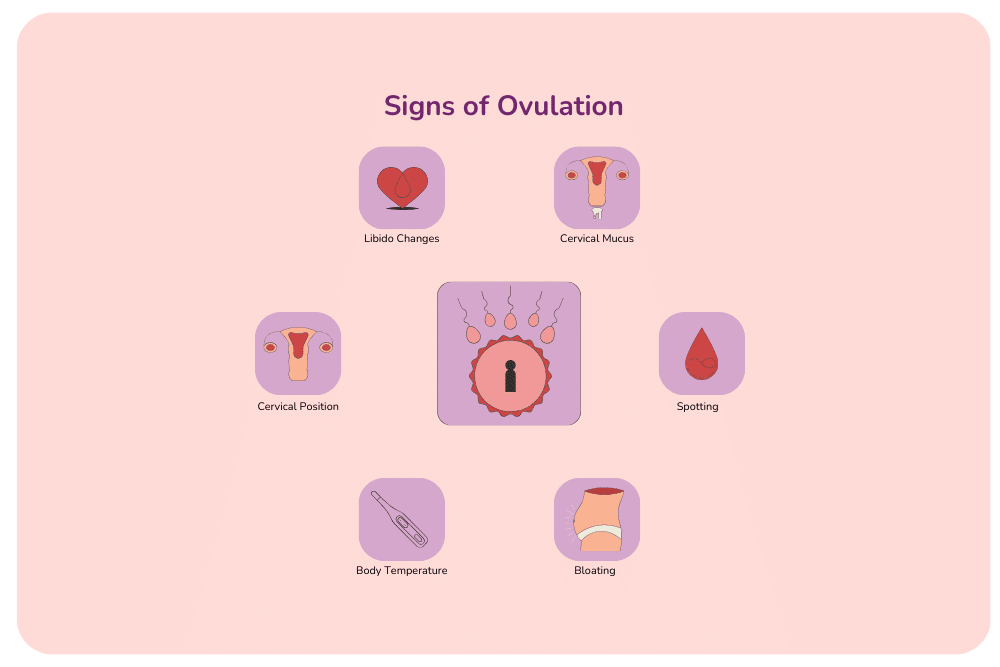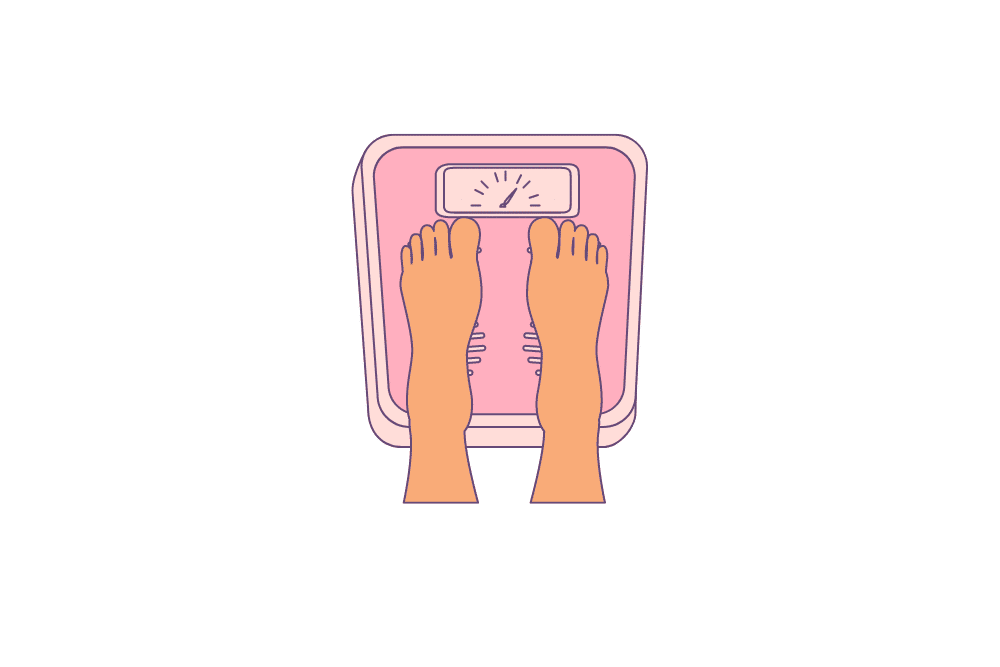Late or missed periods can be a source of concern for many women, and understanding the reasons behind late periods can be helpful for maintaining overall health and well-being. While pregnancy often leaps to mind as the primary culprit for missed periods, other factors can contribute to delays in menstrual cycles.
In this guide, we explore the maximum delay in periods when pregnancy isn’t the cause. By shedding light on lesser-known reasons and offering practical insights, you’ll feel empowered with the knowledge needed to navigate this aspect of reproductive health confidently.
Normal Menstrual Cycle
First, let’s start by grasping the fundamentals of a normal menstrual cycle.
A normal menstrual cycle spans approximately 28 days, although variations are common. It commences on the first day of menstrual bleeding and concludes just before the onset of the subsequent menstrual period.
Phases of the Menstrual Cycle
- Follicular Phase: This initial phase begins on the first day of menstruation and extends until ovulation occurs. During this period, the follicles in the ovaries mature under the influence of follicle-stimulating hormone (FSH), preparing for ovulation.
- Ovulation: Ovulation marks the release of a mature egg from one of the ovaries, typically around the midpoint of the menstrual cycle. It is triggered by a surge in luteinising hormone (LH), facilitating the possibility of fertilisation.
- Luteal Phase: Following ovulation, the ruptured follicle transforms into a structure known as the corpus luteum, which secretes progesterone to prepare the uterine lining for potential implantation. If fertilisation does not occur, hormone levels decline, leading to the shedding of the uterine lining and the onset of menstruation.

Maximum Delay in Periods
When looking into delays in menstrual cycles, a maximum delay is typically considered to occur when the gap between menstrual periods extends beyond 35 days. While variations in cycle length are common and can be influenced by factors such as stress or lifestyle changes, a late period of this magnitude may warrant further investigation to determine underlying causes.
Common Causes of Delayed Periods
A late or missed period can be caused by a variety of factors. Here are some common ones:
- Hormonal Imbalances: Fluctuations in hormone levels, particularly oestrogen and progesterone, can affect the regularity of menstrual cycles. Hormonal conditions such as polycystic ovary syndrome (PCOS), thyroid disorders, and perimenopause can all lead to hormonal imbalances.
- Stress: Psychological stress can disrupt the hypothalamic-pituitary-ovarian axis, leading to irregularities in menstrual cycles. High levels of stress, whether acute or chronic, can affect hormone production and ovulation.
- Weight Changes: Significant weight loss or weight gain can disrupt hormonal balance and affect menstrual regularity. Women with eating disorders like anorexia nervosa or bulimia may experience irregular periods due to extreme weight fluctuations.
- Excessive Exercise: Intense physical activity, especially when combined with inadequate calorie intake, can lead to irregular periods or even amenorrhea (absent periods). This is often seen in athletes or individuals with very strenuous workout routines.
- Poor Nutrition: A diet lacking in essential nutrients can affect hormone production and menstrual cycles. Inadequate intake of calories, vitamins, and minerals can disrupt the functioning of the reproductive system.
- Medications: Certain medications, such as hormonal birth control, antipsychotics, chemotherapy drugs, and some antidepressants, can impact menstrual regularity as a side effect.
- Medical Conditions: Various medical conditions can contribute to irregular periods, including polycystic ovary syndrome (PCOS), endometriosis, uterine fibroids, pelvic inflammatory disease (PID), and ovarian cysts. Poorly managed diabetes can also impact hormone levels and interfere with the normal functioning of the reproductive system, leading to menstrual irregularities.
- Thyroid Disorders: Both hypothyroidism and hyperthyroidism can affect menstrual cycles. Thyroid hormones play a key role in regulating metabolism and can influence reproductive function.
- Perimenopause and Menopause: As women approach menopause, typically in their late 40s to early 50s, menstrual cycles may become irregular before eventually stopping altogether.
- Other Factors: Smoking, excessive alcohol consumption, and certain environmental factors may also impact menstrual regularity and make your period late.
It’s essential for women experiencing irregularities in their menstrual cycles to consult a healthcare provider for proper evaluation and management. Treatment will depend on the underlying cause identified through medical history, physical examination, and possibly additional tests or imaging studies.

Symptoms and Signs
Delayed periods may manifest with various accompanying symptoms, including:
- Breast Tenderness: Sensitivity or discomfort in the breasts is a common symptom experienced by some individuals before the onset of menstruation.
- Mood Swings: Hormonal fluctuations associated with delayed periods can contribute to mood swings, irritability, or emotional sensitivity.
- Abdominal Cramping: Mild abdominal cramps or discomfort may occur as the body prepares for menstruation, even if periods are delayed.
- Fatigue: Feelings of fatigue or lethargy may accompany delayed periods due to hormonal changes or disruptions in sleep patterns.
- Changes in Libido: Some individuals may notice fluctuations in libido or sexual desire associated with delayed periods.
When to Seek Medical Advice
While occasional delays in periods may not necessarily indicate a serious underlying issue, certain symptoms warrant a check-in with your GP. It’s advisable to seek medical advice if experiencing any of the following:
- Severe or Prolonged Delay: If periods are consistently delayed beyond the normal range or are accompanied by severe pain or discomfort.
- Unexplained Weight Changes: Sudden or significant changes in weight without apparent cause may indicate hormonal imbalances or underlying medical conditions.
- Irregular Bleeding: Any abnormal or irregular bleeding between periods or after intercourse should be evaluated by a healthcare provider.
- Other Concerning Symptoms: Symptoms such as pelvic pain, abnormal vaginal discharge, or fever should be promptly assessed by a medical professional.
By paying attention to these symptoms and knowing when to seek medical advice, you can take proactive steps to address potential underlying issues and ensure optimal menstrual health.

Treatment and Management
If you’re dealing with irregular menstrual cycles, it’s essential to consult a healthcare professional for personalised advice and guidance regarding treatment options. They can conduct a thorough evaluation, including medical history, physical examination, and diagnostic tests, to identify the underlying cause of delayed periods and recommend appropriate treatment modalities.
Everyone’s situation is unique, and treatment decisions should be made in collaboration with a healthcare provider based on comprehensive assessment and consideration of individual needs and preferences. By seeking professional medical guidance and exploring tailored treatment options, you can effectively manage delayed periods and promote overall reproductive health and well-being.





